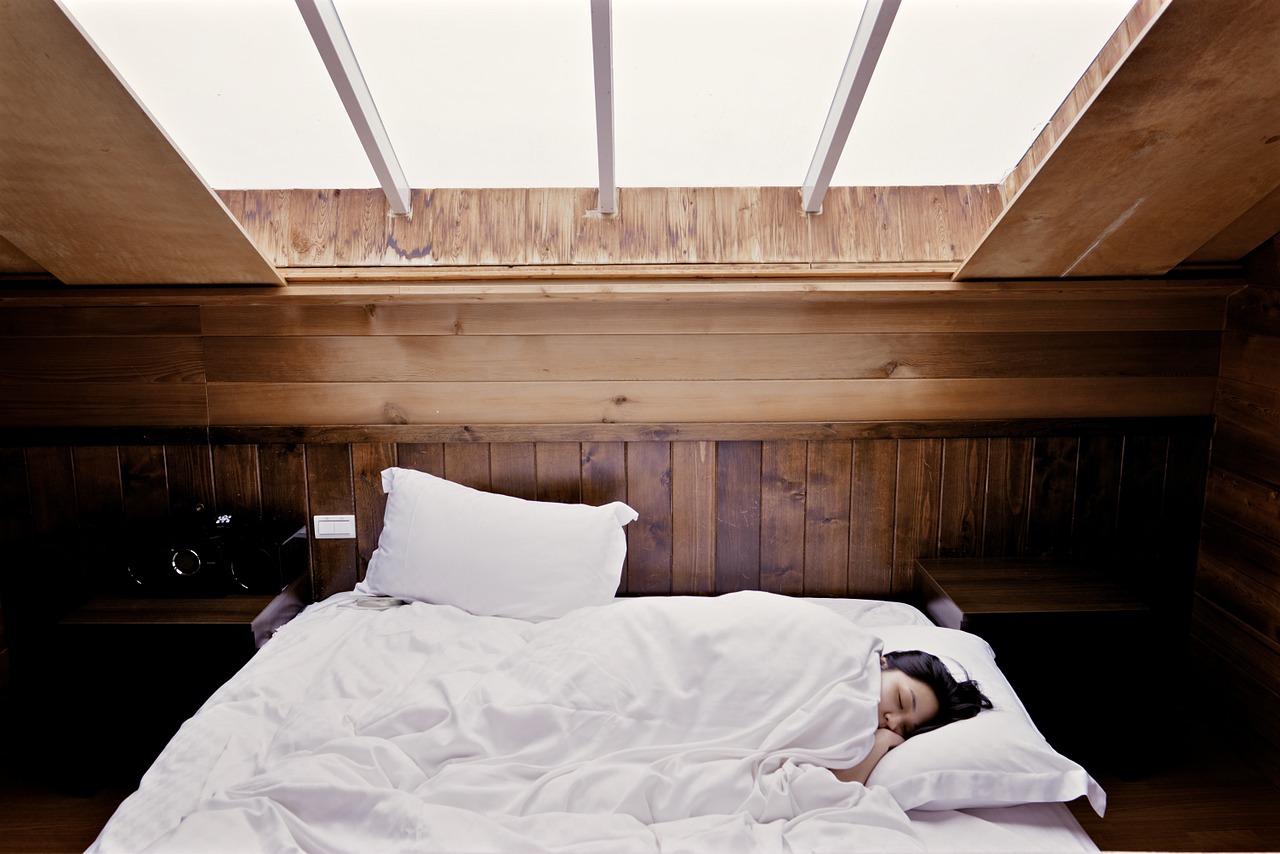I am used to parents coming to me for advice regarding screen time and how to balance it. Having giving talks about it and having a company that managed screen time on all devices at home, I had my share of research on the matter. I am always keen to help families strike a healthy balance with technology. This time I was asked about teens sleeping habits — how technology affects their sleep, and why sleep is so important.
“You need to wake up, it’s already mid-day — You are wasting your days sleeping.”
“If you weren’t on your phone so late at night you wouldn’t be so tired.”
“Put down your phone and go to sleep!!!!”
These are just a few examples I’ve heard.
Sounds familiar?! Hey, I said it myself and I’m sure you said it as well. For the sake of everyone’s sanity, let me try and help us all — first explain a bit about what’s happening and then share with you what can be done.
Some Background
Sleep is incredibly important in human’s healthy living. We all know we need it, as it is the single most effective way to reset out our brain and body’s health each day. It offers a multitude of health-ensuring benefits. As Shakespeare stated it in Macbeth [sleep is] “the chief nourisher in life’s feast”. How many hours do we need to “feast” depends on our age. Starting with adults — the guidelines are between 7–9 hours. While for children the range varies: Preschool children (ages 3–5) are recommended 10–13 hours a day; School-age children (ages 6–13) 9–11 hours a day; And teenagers (ages 14–17) need about 8–10 hours each day.
As a parent, I know making sure a young child gets enough sleep is not so hard, but as they get older it becomes a challenge especially during their adolescent years.
Between Childhood and Adulthood
The reasons our teens do not get enough sleep varies from hormones, seek for independence, and also the normal change in sleep schedule. Sleep schedule, sleep cycle, or by it’s professional term Circadian Rhythm is our sleep/wake cycle or body-clock. It is a natural, internal system that’s designed to regulate feelings of sleepiness and wakefulness over a 24-hour period. In his book “Why We Sleep” Matthew Walker, PhD explains that “as a nine-year-old, the circadian rhythm would have the child asleep by around nine p.m., driven in part by the rising tide of melatonin… By the time that same individual has reached sixteen years of age, their circadian rhythm has undergone a dramatic shift… As a consequence, the sixteen-year-old will usually have no interest in sleeping at nine p.m. Instead, peak wakefulness is usually still in play at that hour. “ He adds that “Asking your teenage son or daughter to go to bed and fall asleep at ten p.m. is the circadian equivalent of asking you, their parent, to go to sleep at seven or eight p.m. No matter how loud you enunciate the order, no matter how much that teenager truly wishes to obey your instruction, and no matter what amount of willed effort is applied by either of the two parties, the circadian rhythm of a teenager will not…change. Furthermore, asking that same teenager to wake up at seven the next morning and function with intellect, grace, and good mood is the equivalent of asking you, their parent, to do the same at four or five a.m.”
This piece of information was important to me as a parent as well as for the parents I’ve spoken to. Knowing it, helped them to better understand their teen and better address the issue. However, it did not solve it. We will get there but not just yet. There are some other things we need to discuss before we do.

The Benefits of Sleep
All humans are hardwired to sleep, and not just for resting our bodies.
Ernest Hemingway used to say “I love sleep. My life has the tendency to fall apart when I’m awake, you know?”
Teens have a tendency to be melodramatic at times just like Hemingway’s quote but there are benefits to sleep, not just for avoiding drama.
Creativity — When we sleep our brain take the freshly minted memories and begins colliding them with the entire “back catalog of our life’s autobiography”. Walker in his book explains that “These mnemonic collisions during…sleep spark new creative insights as novel links are forged between unrelated pieces of information…“ [during the time we sleep],” sleep can even take a step back, so to speak, and divine overarching insights and gist… We can awake the next morning with new solutions to previously intractable problems or even be infused with radically new and original ideas”.
Memory Aid — Sleep proved itself as a memory aid at many studies, both before and after learning new materials. One study conducted by Walker and his team tested two groups of healthy young adults. Where after a learning session one group took a 90 minutes nap, while the other stayed awake. Then they both continued learning. At the end of the day, both groups were tested and the results were clear, the group that rest scored 20% higher than the other.
Brain Development — Sleep also plays a big role in teen’s brain development and lack of it can become an issue. Unfortunately, what we’ve missed we cannot sleep back. A recent study examining insomnia symptoms in early adolescent girls, ages 9 -13, showed “increased depression, anxiety, vigor and fatigue following sleep deprivation. Furthermore, sleep loss is associated with both increased negative mood and issues with emotional regulation in adolescents”. And if that’s not enough to convince you, they found connections between “sleep deprivation and depression, ADHD, impulse control disorders, anxiety, and bipolar disorder, indicating a key role of sleep in adolescent mental health”.
When teen sleep (meaning get enough sleep) their brain continues to develop reaching the complete development of their frontal lobe. It doesn’t happen overnight but over a period of time, night time.
I can go on and on about the benefits, as you can see, sleep supports learning, memory, attention, cognition, emotion processing and more for young adults. Now it’s time to see how we can help them benefit from their sleep.
How Technology Affects Our Sleep

Modern society has changed the way we used to sleep. For example since the invention of beds we no longer sleep on the floor; with the invention of electricity we can stay up later, meaning go to sleep later and still wake up early. All those inventions are great but they also result in a pattern of chronic insufficient sleep for many teens. It’s the later bedtimes due to homework and after school activities that delay their sleep; while wake up times, driven by school start times, remain unchanged or worse, move to an even earlier time.
Unfortunately we cannot change the time they go to school, but we can help with the time they go to sleep. Big part of the change will have to be with their relationship with their phones, as phones play a big role in not getting enough sleep for teens. Several reasons for that are:
The glow of most phones disrupt the circadian rhythms that affect the sleep-wake cycles. Our bodies are naturally programmed to interpret light and dark as signals to fall asleep or be alert. The light emitted from smartphones, computers, gaming devices, and even the television can mix brain signals causing us, and especially our teens to stay awake.
It’s not just the light. It’s also the ‘Fear of Missing Out ‘ (FOMO) that keeps our teens up at night. Many of them keep their phones next to the bed to ensure they won’t miss out on any updates or messages. In fact, 56 percent of all social media users including us and our teens have that fear. Every ping or alert can emphasize FOMO and interfere with the natural sleep cycle. And when they finally fell asleep, beeping notification sounds may wake them up.
If we want them to improve their sleep quality we need to help them understand what stands in their way of a good night sleep.
Tips to Support Teen’s Good Night Sleep
I’ve listed here tips for your teen, I suggest going over them together and see what you can change.
- Make a plan for sleep. Set a reasonable bedtime for yourself that will allow enough time to sleep — and keep as close to it as you can. And make sure to stick as closely as you can to your sleep schedule on weekends too.
- Playing with light. Get bright light every morning when you wake up to help move your internal clock to an earlier time that can help you fall asleep earlier. Avoid light at night before bedtime to keep your internal clock from moving later.
- No caffeine. Avoid caffeine after school (here is a caffeine chart, as not only coffee has caffeine)
- The bedroom should be a screen free zone. Keep your phone out of the bedroom. If you need something to help your mind calm down, choose a physical book.
- Avoid screens before bed, for at least 30 minutes (ideal will be two hours but let’s start small). We want to avoid those awakening effects I was mentioning at the beginning.
- Invest in an alarm clock, the old fashioned one. As it is less tempting than the phone, it only shows the time and start ringing when it’s time to wake up.
- Set Bedtime for your phone. Lock screen will dim, calls will be silenced, and notifications will not be visible. That way, even if they forget and kept it by their side, they won’t be disturbed.
If you have other tips that work for your teen, please share them at the comments section below, I’m sure other parents will appreciate your help!
I will finish with a quote from The Odyssey by Homer “There is a time for many words, and there is also a time for sleep.”
Sleep tight…?


